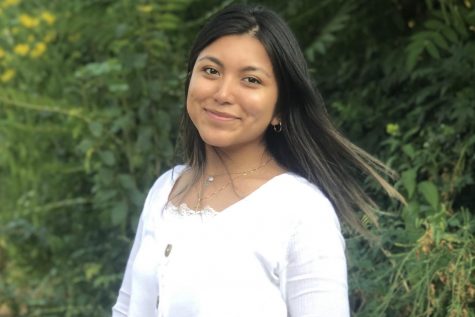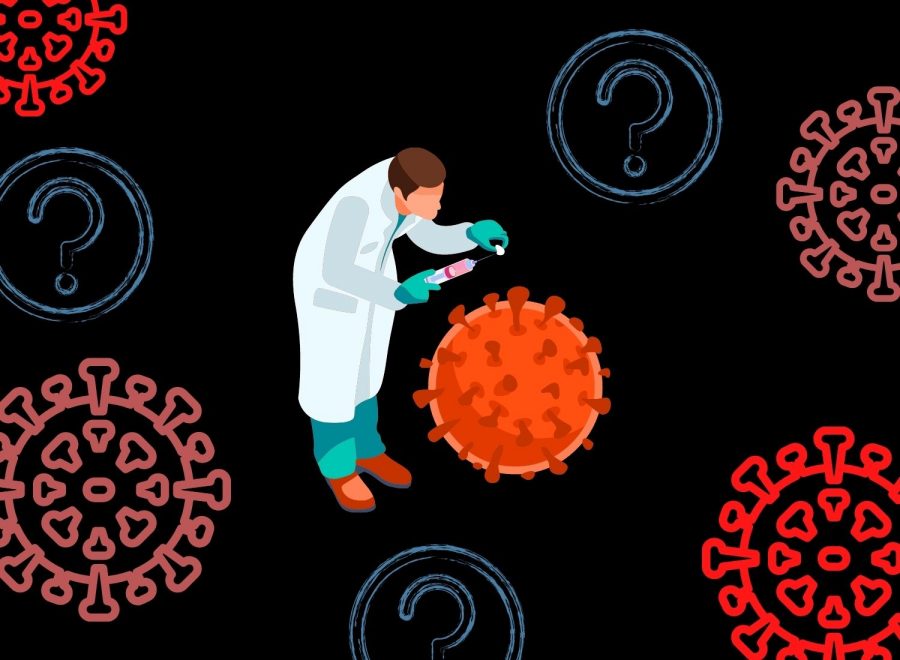A healthcare worker’s perspective on the COVID-19 vaccine
Pfizer-BioNTech and Moderna developed the COVID-19 vaccine on Dec. 20. The vaccine distribution has created discussion questioning the safety of the vaccine. Every day more healthcare workers are receiving the newly developed vaccine.
Since March 13, America has been battling the coronavirus. Since then, Americans have been seeking a solution. However, now that the FDA approved two vaccines for public distribution, Americans are getting cold feet. According to the PEW research center, “40% of Americans say they will definitely not or probably not get the COVID-19 vaccine when it becomes available to them.”
What contributes to this sudden vaccine stigma? Is it the fact that most vaccines take 10-15 years to develop, while Pfizer-BioNTech and Moderna have taken less than a year? Is it just general misinformation on the effects of it?
Dr. Mahvish Hamid, a general physician at DuPage County Health, believes that it’s somewhat of both.
“I think that we should be educating people on the vaccine,” Hamid said. “There are a lot of myths going around how the vaccine is ‘underdeveloped’–that are untrue.”
The reason for the rapid development of the Moderna and Pfizer vaccine is not because the Department of Health is sacrificing Americans’ health. According to medicalnewstoday, “the innovative mRNA approach was already in development.” The US government “partnered with multiple institutions” internationally in response to the global pandemic. The circumstances of the COVID-19 vaccine are different which is what led to its swift approval and distribution.
Now, healthcare workers have the option to receive either vaccine. Hamid spoke about her experience receiving the Pfizer vaccine on Dec. 23.
“It was like getting any other vaccine,” Hamid said. “[The nurse] gives you the injection, and then medical workers monitor you for half an hour for any side effects. After that, they give you a sticker and you can leave.”
Hamid said that although the process seemed easy enough, she was also nervous about receiving the vaccine.
“I think this vaccine is scary because COVID-19 itself is so new and foreign,” Hamid said. “I tell a lot of my COVID-19 positive patients the same thing: monitor your symptoms very carefully because we do not know how the body will react. The long-term effects are still unknown.”
But Hamid believes that the disease’s “foreign” nature is the exact reason Americans should get the vaccine: to protect against it.
“Overall, we have to look at the risk versus benefit,” Hamid said. “Is the risk low enough and the benefit high enough to yield good results? I believe so.”
The risk, as some Americans believe, are the potential side-effects of the coronavirus vaccine. According to the CDC, “In clinical trials, vaccine symptoms were common but were mostly mild to moderate.”
“Personally I just had some arm pain and body aches,” Hamid said. “They went away after a day.”
The more serious side effects, such as anaphylaxis or Bell’s Palsy, have occurred in very small numbers among trials. Additionally, the CDC recommends anyone with a “weakened immune system, autoimmune conditions, or people who have had severe reactions to previous vaccines,” should not get the COVID-19 vaccine.
“This is why it’s so important to get vaccinated,” Hamid said. “The people with these underlying conditions cannot get immunity or be protected, so it’s up to everyone else to protect them.”
While there is a lot of stigma surrounding the vaccine, Hamid believes there is a lot of hope for America’s future as well. The announcement of the new vaccine is being received differently among people as some have concerns, and others see this as a step in the right direction.
“We finally have a solution to this health crisis,” Hamid said. “I hope Americans are ready to take it.”

Iman is a Senior and this is her first year on staff. She is a headlines reporter for The Stampede. She loves watching TV, hanging out with her friends...

Jessica is a senior and this is her second year on staff. She is the news editor this year. When she is not in the newsroom, she is either hanging out...


